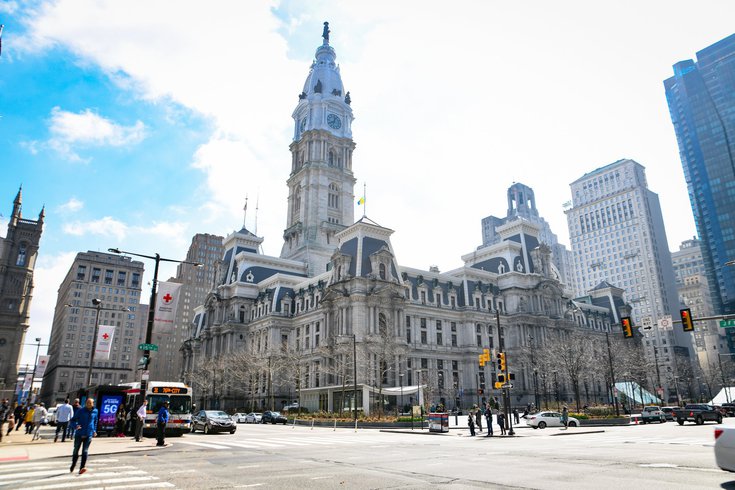
March 04, 2022
 Kate Frese/PhillyVoice
Kate Frese/PhillyVoice
City Council moved a step closer to making Philly the first city in the nation with a municipal bank this week by creating the Philadelphia Public Financial Authority.
City Council voted 15-1 to pass legislation that will initiate the creation of the Philadelphia Public Financial Authority on Thursday.
The entity is meant to provide loans and improve access to credit and other financial services to disadvantaged communities. It's also seen as an initial step toward the city creating its own municipal bank, which would be the first in the nation.
Although the PPFA won't initially provide checking or savings accounts, it could potentially do so in the future, which some of the bill's supporters hope it will.
The authority "will have the ability to provide letters of credit as well as guarantees for businesses, especially Black and brown businesses… that have not traditionally had this type of financial product," said Councilmember Derek Green, who introduced the bill.
These financial tools are essentially a promise from the authority to traditional lenders that it will pay back whatever an entrepreneur borrows.
Green, who used to be a banker himself, said he began working on the bill when he first came into office six years ago. He knows many residents who could have benefitted from the program, including a friend who has a small technology business.
The business owner entered a contract with the city back in October 2021 and has been providing the agreed upon services, but hasn't been paid due to issues on the city's end. The owner then needed to borrow money in order to make payroll.
"They went to their traditional lender, who they had a 17-year relationship with, and that lender would not increase their line of credit that they would need for cash flow," Green said. "They were actually thinking about going to a non-traditional lender and paying a much higher rate of interest just in order to make cash flow for their employees."
The authority's focus on entrepreneurs of color stems from the long history of redlining and loan discrimination in the country. Green says these factors have left African Americans and Latinos owning just 10% of businesses with employees in Philly, even though they make up 44% and 15% of the city's population, respectively.
Green said the PPFA was formed under Pennsylvania's Economic Development Financing Law, which allows municipalities to form an agency that can borrow money to provide residents with loans and letters of credit.
Municipalities in Pennsylvania are prohibited from forming their own municipal banks, so this is a way around that rule, Green told Billy Penn.
But some of the bill's supporters would like to see Philly enter the realm of personal banking, given that 10% of households in the city have no checking or savings account and 22% are underbanked. This leaves them with limited access to credit and financial services like payday loans or check cashing services not offered by the banks where they have accounts.
The PPFA will be run by a nine-person board of directors appointed by the mayor, the Philadelphia Business Journal reports. Each time a vacancy arises, City Council will have the opportunity to recommend candidates. Those directors will appoint a nine-person policy board which will guide the authority's daily operations.
At least five members of the board would need five years of experience working on issues including neighborhood-based small business development, public transportation and environmental and racial justice.
Additionally, one board member must be an officer of Pennsylvania Community Development Financial Institutions Network – a coalition of financial institutions focused on community development. Another must be a board member of a minority-owned bank and one more must have worked for two years defending consumer and community economic interests.
But not everyone believes starting a public bank is a wise idea. The city government is far from free of its own financial issues.
"Do you really have confidence that a city that didn’t reconcile its bank statements for seven years can reliably take taxpayer money and play banker with it?" Larry Platt, the co-founder of the Philadelphia Citizen, wrote in an op-ed on the site last month.
In the article, he points out that the city would need large public subsidies to get the project rolling and notes that a study that explored starting a public bank in San Francisco found that it would take 56 years for the project to break even.
Platt also points out that there are other ways to increase access to credit in underserved communities of color, some of which are already carried out in Philly.
Several organizations focused on improving the flow of capital in communities like the ones Green is focused on have been created in recent years.
That includes the Philadelphia Growth, Resiliency, Independence, Tenacity Fund – a $100 million collaboration between 30 financial institutions to provide credit to Black and Brown communities through the Pennsylvania CDFI.
Platt added that there's currently a movement to create more Black-owned banks in the country. Currently, only 21 of the nation's 4,000-plus banks are owned by African Americans, but many believe they would do a better job of providing credit to communities of color.